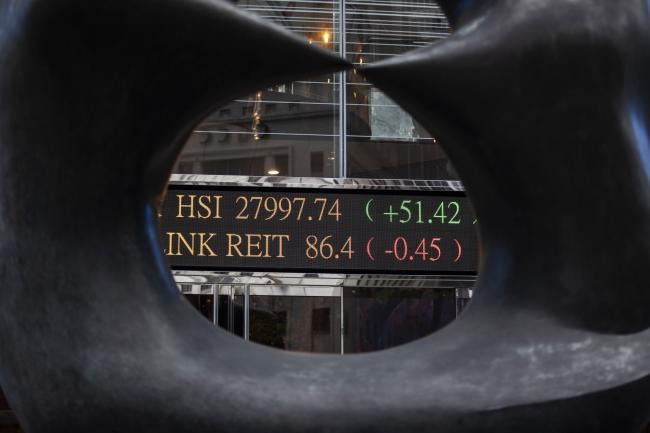(Bloomberg) -- Bruised by the Federal Reserve and beaten by President Donald Trump’s comments on trade, Asian stocks lost over $700 billion in market value last week. It didn’t get any better Monday.
The MSCI Asia Pacific Index slumped as much as 2.2%, set for the worst slump this year as trade tensions escalated and the yuan hit a record low.
Let’s start with the trade war. The trade tension heightened when Trump ratcheted up his rhetoric late Friday by saying he could boost levies on China to a “much higher number.” In response, China’s government has asked state-owned enterprises to suspend imports of U.S. agricultural products, people familiar with the situation said.
Meanwhile in Hong Kong, the city’s protests also escalated with a general strike and commute disruptions. The city’s chief executive Carrie Lam condemned protesters challenging China’s sovereignty, saying they wanted to “completely ruin Hong Kong”.
The Hang Seng Index slumped as much as 3% to its lowest since January, almost wiping out gains for the year. “The ongoing protest and riot has started to erode investor confidence about the city’s future, in particular the real estate, luxury retail, tourism and even the public transportation sector,” said Margaret Yang, a market analyst at CMC Markets Singapore Pte Ltd.
Also in the region, there was no let up in the tension between Japan and South Korea, with South Korean Prime Minister Lee Nak-yon on Sunday urging Tokyo to correct its “reckless and risky” decision to curb exports to the country.
Meanwhile, market participants were readying for the week’s central bank meetings in India, Philippines, New Zealand and Australia. Click here to read Bloomberg Intelligence’s estimates on these events.
Of course one thing the more optimistic investor could pin their hopes on is further monetary support amid all the macro uncertainty. They will be happy to hear from Bank of America (NYSE:BAC) Merrill Lynch strategists including Helen Qiao, who wrote in a note that the escalation in trade tensions may lead to further policy easing in China. The team believe the PBOC will gradually pump more liquidity into the economy when needed, and it may also tolerate more currency adjustment to counter the trade shocks.
Read: China Lets Yuan Tumble Past 7 Per Dollar as Trade War Escalates
Stock Market Summary

- MSCI Asia Pacific Index ex-Japan down 2.2%
- MSCI Asia Pacific Index down 2%
- Japan’s Topix index down 2.4%; Nikkei 225 down 2.3%
- Hong Kong’s Hang Seng Index down 2.9%; Hang Seng China Enterprises down 2.7%; Shanghai Composite down 0.8%; CSI 300 down 1%
- Taiwan’s Taiex index down 1%
- South Korea’s Kospi index down 2%; Kospi 200 down 1.8%
- Australia’s S&P/ASX 200 down 1.4%; New Zealand’s S&P/NZX 50 down 0.9%
- India’s S&P BSE Sensex Index down 1.2%; NSE Nifty 50 down 1.3%
- Singapore’s Straits Times Index down 1.8%; Malaysia’s KLCI down 0.8%; Philippine Stock Exchange Index down 2.1%; Jakarta Composite down 1.5%; Thailand’s SET down 0.6%; Vietnam’s VN Index down 0.8%
- S&P 500 e-mini futures down 1.1% after index closed down 0.7% in last session